Addressing Privacy in LLM Chatbot Healthcare Solutions
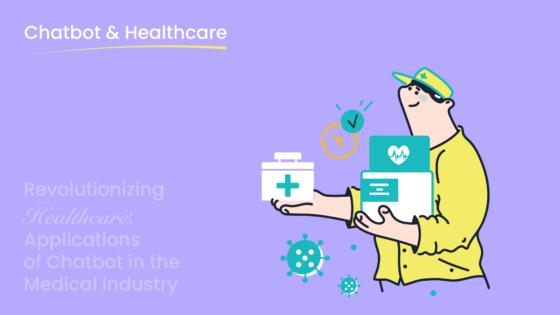
Privacy in healthcare is not just a priority; it is a necessity. When you use ai-driven tools like llm-based chatbot solutions, the stakes become even higher. These systems often manage sensitive patient data, creating vulnerabilities that demand your attention. For instance:
- A study revealed that manipulating only 1.1% of an LLM's weights could introduce incorrect biomedical facts, raising concerns about the reliability of such systems.
- Another assessment showed that replacing just 0.001% of training tokens with misinformation could lead to medical errors, highlighting the need for better data monitoring.
Balancing innovation and privacy is crucial. While ai enhances patient care, integrating privacy-enhancing technologies ensures compliance with laws like GDPR and HIPAA. Tools like Sobot’s chatbot can help you innovate responsibly while safeguarding sensitive information.
Privacy Challenges in LLM-Based Chatbot Solutions

Risks of Data Breaches in Healthcare
Data breaches in healthcare represent one of the most pressing challenges you face when implementing AI-powered chatbots. These breaches expose sensitive patient information, leading to severe consequences for both patients and healthcare providers. In 2023 alone, there were 640 data breaches involving 500 or more records. One of the most significant incidents affected HCA Healthcare, compromising data from at least 11 million patients across 20 states. Such breaches highlight the vulnerabilities in systems handling large volumes of sensitive data.

AI chatbots, while efficient, can become targets for cyberattacks due to their reliance on vast datasets. Hackers exploit these systems to access confidential information, including medical histories and personal identifiers. Without robust encryption and security protocols, these breaches can erode trust in healthcare systems. Sobot’s AI chatbot addresses this concern by employing advanced encryption methods and continuous encrypted backups, ensuring patient data remains secure.
Unauthorized Access to Patient Information
Unauthorized access to patient information poses another critical challenge in healthcare. AI chatbots often process data across multiple platforms, increasing the risk of exposure. For example, incomplete information may arise when chatbots provide answers based on partially scraped policies. Additionally, there is no mechanism to alert users about incomplete policy data, which can lead to misinformation. Privacy policies covering multiple services further complicate the issue, making it difficult to ensure data security.
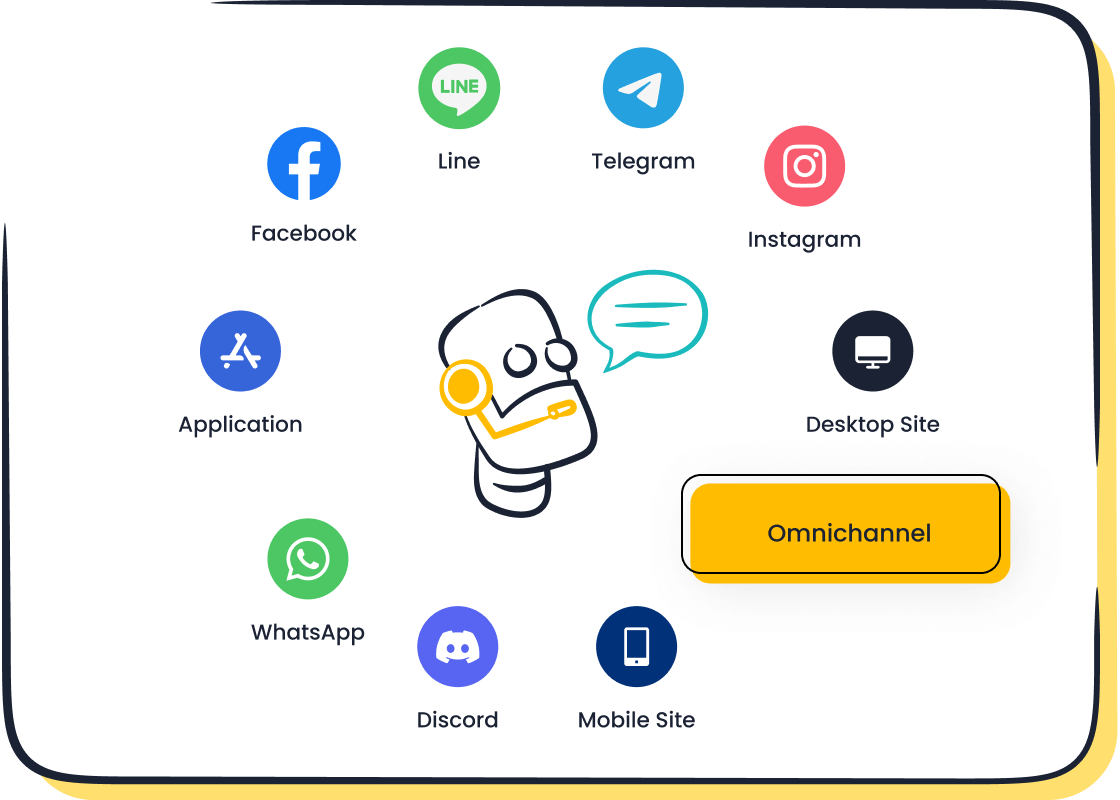
You must prioritize solutions that limit unauthorized access. Sobot’s chatbot offers omnichannel support while maintaining strict compliance with regulations like GDPR and HIPAA. By integrating intelligent routing and secure APIs, Sobot ensures that only authorized personnel can access sensitive information. This approach not only protects patient data but also enhances operational efficiency.
The qualitative review of chat responses revealed the vulnerability of maintaining overly positive statements or marketing speech present in the policy. This risk aligns with broader concerns about LLM-as-a-judge models. The potential for an arms race between LLM-driven evaluations and providers’ manipulative tactics to receive better evaluations echoes similar trends seen in prompt injection attacks and evasion attacks for ML in the broader sense.
Challenges in Building Patient Trust with Chatbots in Healthcare
Building trust with patients remains one of the most significant healthcare challenges when using chatbots. Research on AI chatbots in oncology education shows high user engagement, but this also reveals a fine line between curiosity and reliance. As chatbots adopt human-like personas, they risk manipulating emotions and trust. This can lead to misguided reliance on AI for decision-making, which may negatively impact patient outcomes.
To address this, you need to ensure transparency in how chatbots operate. Patients should understand the limitations of AI and know when to consult a healthcare professional. Sobot’s chatbot fosters trust by providing accurate, real-time responses while maintaining transparency about its capabilities. Its multilingual support and 24/7 availability further enhance patient satisfaction, ensuring that users feel supported at all times.
Regulatory and Ethical Considerations for Chatbots in Healthcare
HIPAA Compliance and Its Role in Protecting Patient Data
HIPAA compliance plays a vital role in safeguarding patient data when using AI chatbots in healthcare. You must ensure that these systems meet strict standards for accuracy, security, and trust. For example, HIPAA requires over 95% accuracy in responses, 100% encryption adherence, and a customer satisfaction rate above 85%. These benchmarks help protect sensitive information while maintaining high service quality.
To achieve compliance, you should implement measures like end-to-end encryption and multi-factor authentication. These steps prevent unauthorized access and ensure data remains secure. Routine audits also help you identify vulnerabilities and maintain compliance. Sobot’s chatbot supports HIPAA compliance by offering encrypted backups and role-based access permissions, ensuring patient data stays protected.
GDPR and Global Standards for Privacy in Healthcare
GDPR sets a global standard for privacy, influencing how healthcare organizations manage sensitive data. By complying with GDPR, you can protect patient information from cyber threats and avoid costly fines. This compliance also gives you a competitive edge by demonstrating a commitment to security.
Globally, GDPR has inspired similar privacy frameworks, raising industry standards. For healthcare, this means adopting robust data protection measures. Sobot’s chatbot aligns with GDPR by providing secure APIs and adhering to strict privacy protocols. These features help you meet global standards while addressing the challenges of AI in healthcare.
Ethical Implications of Using AI in Patient Care
The ethical use of AI in healthcare raises important questions about privacy and trust. Many AI technologies are owned by private companies, which can lead to concerns about data control. Advanced algorithms also pose risks by reidentifying anonymized data, compromising patient privacy.
Surveys show that only 11% of Americans are willing to share health data with tech companies, compared to 72% with physicians. This highlights the need for transparency and stronger oversight. You can address these concerns by choosing AI solutions that prioritize ethical practices. Sobot’s chatbot fosters trust by maintaining transparency and ensuring data security, helping you navigate the challenges of AI in healthcare responsibly.
Technological Solutions to Address Healthcare Challenges
Encryption for Securing Patient Data in Chatbots
Encryption plays a critical role in protecting patient data when using chatbots in healthcare. It ensures that sensitive information remains secure during transmission and storage. Advanced encryption methods, such as homomorphic encryption, allow data to stay encrypted even while being processed. This means that even if unauthorized individuals intercept the data, they cannot access the underlying information. For example, hospitals can use homomorphic encryption to analyze patient data collaboratively without exposing it to external threats.
Combining encryption with differential privacy creates a robust security framework. Differential privacy adds noise to the data, making it nearly impossible to trace back to individual patients. This approach is particularly useful for llm-based chatbot solutions, which rely on vast datasets to provide accurate responses. By implementing these technologies, you can address the challenges of data breaches and unauthorized access, ensuring compliance with regulations like HIPAA and GDPR.
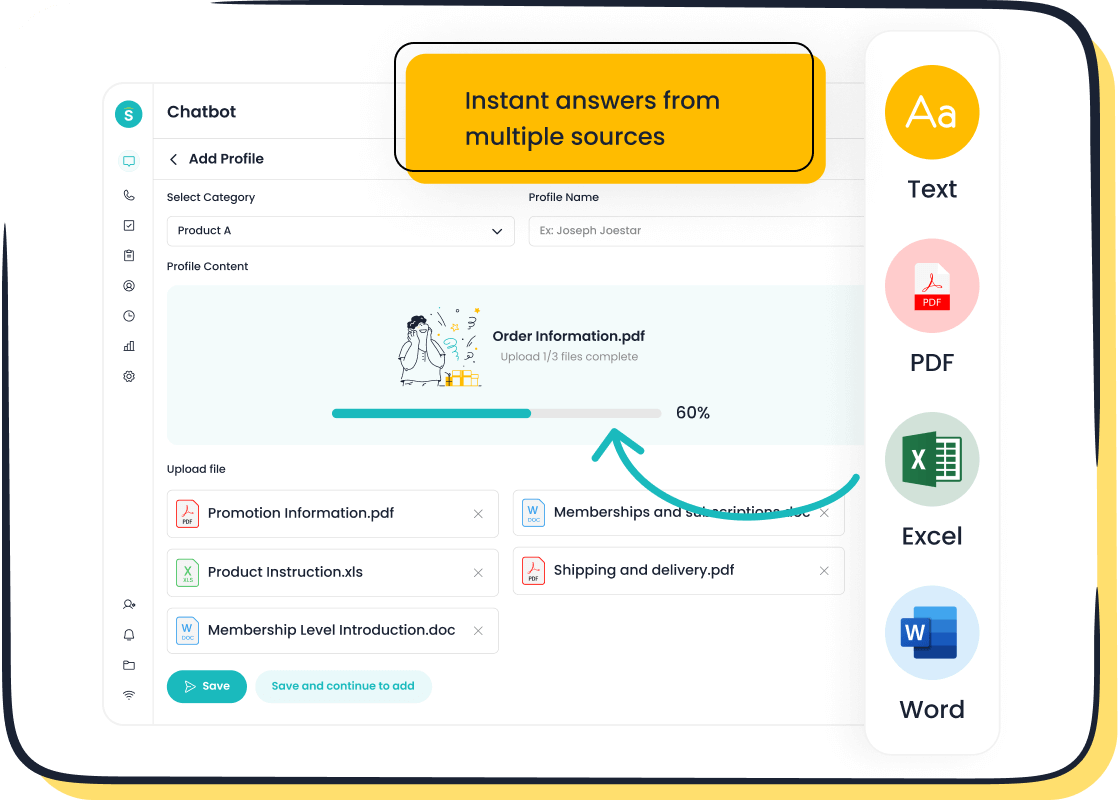
Sobot’s AI chatbot incorporates advanced encryption techniques to safeguard patient data. With features like continuous encrypted backups and secure APIs, Sobot ensures that your healthcare solutions remain both efficient and secure. These measures not only protect sensitive information but also build trust with patients, a crucial factor in the adoption of AI-driven healthcare technologies.
Federated Learning for Privacy in LLM-Based Chatbot Solutions
Federated learning offers a groundbreaking approach to maintaining privacy in llm-based chatbot solutions. Instead of centralizing data in one location, federated learning allows multiple devices or servers to train AI models locally. This means that patient data never leaves its original source, significantly reducing the risk of breaches. For healthcare providers, this decentralized approach ensures that sensitive information remains protected while still enabling the development of accurate and efficient chatbots.
For example, a hospital network can use federated learning to train a chatbot on patient data from multiple facilities without sharing the data between them. This method not only enhances privacy but also complies with strict data protection regulations. By leveraging federated learning, you can address the challenges of data security while improving the performance of your AI solutions.
Sobot’s AI chatbot supports federated learning, enabling you to train models securely across multiple platforms. This feature ensures that your chatbot solutions remain compliant with privacy standards while delivering high-quality patient care. By adopting federated learning, you can innovate responsibly and maintain the trust of your patients.
Differential Privacy for Anonymizing Healthcare Data
Differential privacy provides a powerful solution for anonymizing healthcare data. It works by adding controlled noise to datasets, making it extremely difficult to identify individual patients. This method addresses the limitations of traditional anonymization techniques, which often fail to protect against advanced reidentification attacks. Differential privacy ensures that you can use patient data for analysis and training AI models without compromising privacy.
The importance of differential privacy in healthcare is highlighted in several studies:
| Study Title | Key Findings |
|---|---|
| A Survey on Differential Privacy for Medical Data Analysis | Discusses the importance of data security and privacy preservation in medical data analysis, emphasizing the role of differential privacy strategies in mitigating privacy risks. |
| Differential Privacy Medical Data Publishing Method Based on Attribute Correlation | Highlights the limitations of traditional anonymization methods and introduces a differential privacy model that adds noise to protect privacy against various attacks. |
By implementing differential privacy, you can address the challenges of anonymizing large datasets while ensuring compliance with regulations like GDPR. This approach is particularly valuable for llm-based chatbot solutions, which require access to extensive data to function effectively.
Sobot’s AI chatbot leverages differential privacy to anonymize patient data, ensuring that your healthcare solutions remain secure and compliant. This feature allows you to harness the power of AI while protecting sensitive information, enabling you to provide innovative and trustworthy patient care.
Sobot Chatbot’s Role in Enhancing Privacy and Security
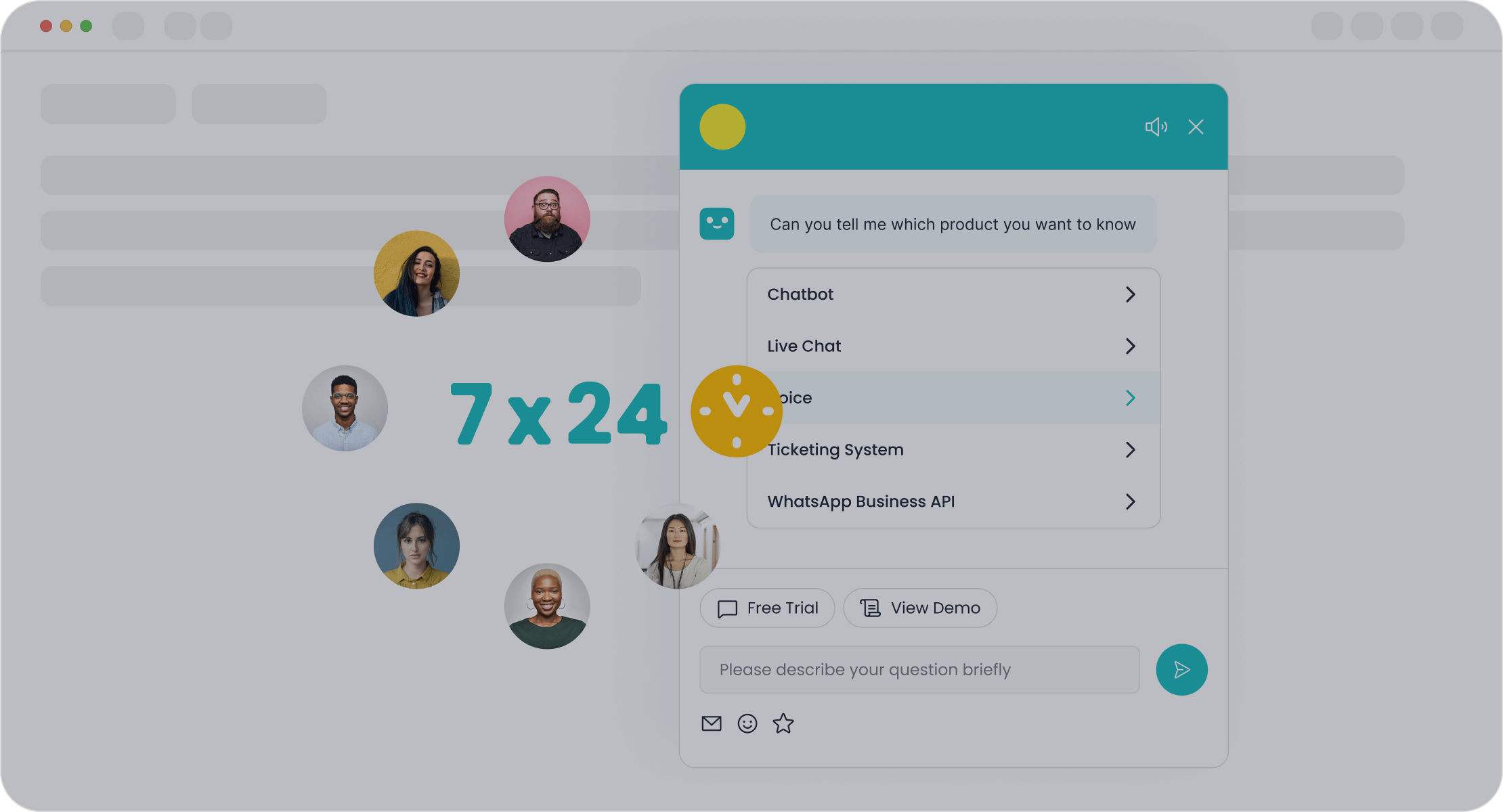
Sobot’s AI-powered chatbot stands out as a reliable solution for addressing privacy and security challenges in healthcare. It combines advanced technologies with strict compliance measures to protect sensitive patient information while delivering efficient and accurate service.
Key Features That Enhance Privacy and Security
- Regulatory Compliance: Sobot’s chatbot adheres to global standards like GDPR and HIPAA. These regulations ensure that healthcare data remains secure and confidential. By meeting these requirements, you can avoid legal risks and build trust with patients.
- Privacy-Enhancing Technologies: The chatbot integrates cutting-edge methods such as data masking, encryption, and secure multi-party computations. These technologies prevent unauthorized access and safeguard sensitive information during transmission and storage.
- Continuous Encrypted Backups: Sobot ensures that patient data remains protected even in the event of system failures or cyberattacks. This feature minimizes the risk of data loss and enhances overall security.
Real-World Applications in Healthcare
Sobot’s chatbot has proven its effectiveness in real-world scenarios. For example, Agilent, a leader in life sciences and diagnostics, achieved a sixfold increase in customer service efficiency by implementing Sobot’s solution. The chatbot handled routine inquiries securely, allowing human agents to focus on complex tasks. This resulted in a 25% reduction in operational costs and a customer satisfaction score of 95%.
Building Trust Through Transparency
Transparency plays a crucial role in fostering trust with patients. Sobot’s chatbot provides clear and accurate responses while maintaining transparency about its capabilities. Its multilingual support ensures that patients from diverse backgrounds feel understood and supported. By prioritizing transparency, you can enhance patient satisfaction and encourage the adoption of AI-driven healthcare solutions.
Why Choose Sobot for Healthcare Privacy?
Sobot’s chatbot offers a comprehensive approach to privacy and security. Its advanced encryption methods, compliance with global standards, and real-world success stories make it an ideal choice for healthcare providers. By leveraging Sobot’s solution, you can innovate responsibly while safeguarding sensitive patient data.
Tip: Implementing Sobot’s chatbot not only enhances privacy but also improves operational efficiency, allowing you to focus on delivering high-quality patient care.
Best Practices for Implementing LLM-Based Chatbot Solutions in Healthcare
Conducting Regular Privacy and Security Audits
Regular privacy and security audits are essential for ensuring the safety of patient data when using chatbots in healthcare. These audits help you identify vulnerabilities in your systems and address them before they lead to breaches. By reviewing encryption protocols, access permissions, and data storage practices, you can maintain compliance with regulations like HIPAA and GDPR.
Audits also allow you to evaluate how effectively your chatbots handle sensitive information. For example, you can test whether the chatbot encrypts patient data during transmission and storage. Sobot’s chatbot simplifies this process by offering features like continuous encrypted backups and secure APIs. These tools make it easier for you to maintain a secure environment for patient care.
Establishing Transparent Data Policies for Patient Care
Transparent data policies build trust between you and your patients. When patients understand how their data is collected, stored, and used, they feel more confident engaging with chatbots. Clear policies also ensure compliance with privacy laws and ethical standards.
You can enhance transparency by integrating technologies like blockchain with explainable AI. This combination improves data security and ensures reliable diagnostics. The table below highlights the benefits of transparent data policies:
| Evidence Description | Benefit |
|---|---|
| Integration of blockchain technology with explainable AI enhances data security. | Builds trust in healthcare applications through secure and transparent data management. |
| Chatbots improve patient engagement and provide timely assistance. | Supports decision-making and addresses data integrity issues. |
| Blockchain-assisted AI chatbots ensure reliable healthcare diagnostics. | Enhances trust and decision-making reliability in patient care. |
Sobot’s chatbot supports transparent data policies by providing clear explanations of its data handling practices. This approach fosters patient engagement and ensures informed consent, which is critical for ethical patient care.
Training Healthcare Staff on Privacy Protocols
Training healthcare professionals on privacy protocols is vital for protecting patient data. Many organizations recognize the risks associated with AI but fail to prepare their staff adequately. Studies show that while 93% of companies acknowledge these risks, only 17% provide training or briefings. This gap highlights the urgent need for education.
You can address this issue by organizing regular workshops and training sessions. These programs should cover topics like data encryption, informed consent, and the ethical use of chatbots. Sobot’s chatbot complements these efforts by offering user-friendly features that simplify compliance. When healthcare professionals understand privacy protocols, they can use AI tools more effectively, enhancing patient care and engagement.
Tip: Investing in staff training not only reduces risks but also improves the overall efficiency of your healthcare operations.
Leveraging Sobot’s AI Chatbot for Secure and Efficient Patient Interactions
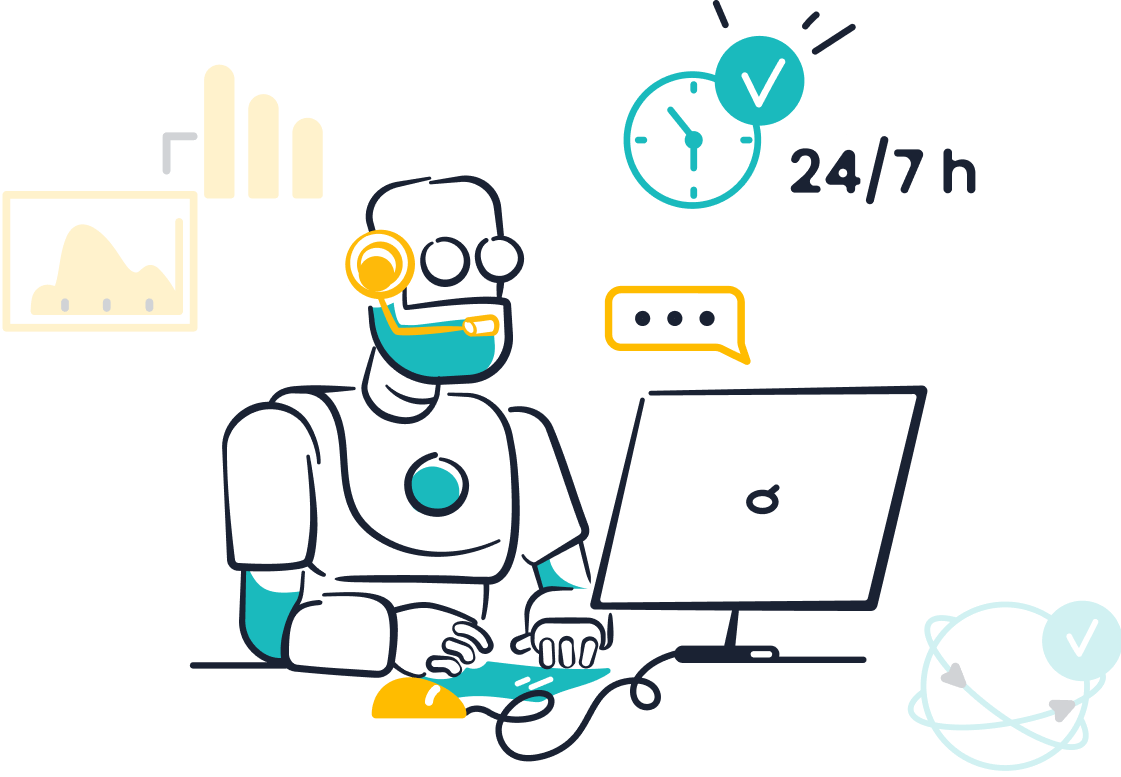
Sobot’s AI chatbot offers a transformative solution for secure and efficient patient interactions in healthcare. By combining advanced technology with user-centric design, it ensures that you can provide high-quality care while safeguarding sensitive information.
Key Performance Metrics of Sobot’s AI Chatbot
The chatbot’s performance metrics demonstrate its ability to enhance patient interactions effectively. These metrics include:
| Performance Metric | Description |
|---|---|
| Actionable Insights | Provides data-driven insights to optimize chatbot responses, enhancing efficiency in patient interactions. |
| Customer Engagement | Personalizes experiences by analyzing user trends, which is crucial for effective patient communication. |
| Seamless Operations | Streamlines workflows and eliminates inefficiencies, ensuring smooth patient interactions. |
These metrics highlight how Sobot’s chatbot improves both the quality and security of patient communication.
How Sobot’s AI Chatbot Enhances Efficiency
The platform uses machine learning to refine responses over time, ensuring relevance in patient interactions. A powerful analytics dashboard tracks key performance indicators, helping you identify areas for improvement. For example, if patients frequently ask about appointment scheduling, the chatbot can adapt to provide faster, more accurate responses.
By streamlining workflows, Sobot’s chatbot reduces the workload on healthcare staff. It handles routine inquiries, allowing your team to focus on complex cases. This not only improves operational efficiency but also enhances patient satisfaction.
Building Trust Through Secure Interactions
Sobot’s chatbot prioritizes security by integrating advanced encryption and continuous encrypted backups. These features protect patient data during transmission and storage. Its compliance with regulations like HIPAA and GDPR ensures that you meet global privacy standards. This commitment to security fosters trust, encouraging patients to engage more openly with chatbots.
Tip: Use Sobot’s chatbot to create a seamless, secure experience for your patients. Its multilingual support and 24/7 availability ensure that every patient feels valued and supported.
By leveraging Sobot’s AI chatbot, you can transform patient interactions in healthcare. Its innovative features and robust security measures make it an essential tool for modern healthcare providers.
Balancing Innovation and Privacy in Healthcare Chatbots

Leveraging AI Responsibly in Patient Care
Using ai in patient care requires a responsible approach to ensure both innovation and privacy. You must prioritize solutions that enhance care without compromising sensitive information. For example, the reSET® digital therapeutic, a prescription tool for substance and opioid use disorders, has successfully navigated regulatory processes. This demonstrates how innovation can align with privacy standards. Engaging stakeholders, including legal and compliance teams, early in the development process ensures that your solutions meet privacy regulations while improving patient outcomes.
To leverage ai responsibly, focus on integrating privacy-enhancing technologies like encryption and federated learning. These tools protect patient data while enabling chatbots to deliver accurate and efficient care. By adopting such practices, you can balance the benefits of innovation with the need for robust privacy protections.
Building Patient Trust Through Transparency and Accountability
Transparency and accountability are essential for building trust in healthcare chatbots. Patients need to understand how their data is collected, stored, and used. Clear communication fosters confidence and encourages engagement with ai-driven tools. Hospitals and clinics that involve patients in data collection processes often see improved trust and transparency. This approach also helps monitor progress and identify areas for improvement.
The following table highlights key factors that contribute to trust and accountability:
| Key Factor | Description |
|---|---|
| Trust | Essential for effective data analytics in healthcare. |
| Accountability | Ensures that stakeholders are responsible for their actions and decisions. |
| Transparency | Involves clear communication of data and decision-making processes. |
| Collaboration | Encourages teamwork among healthcare providers and patients. |
| Risk | Understanding and managing potential risks associated with data use. |
| Education | Informs stakeholders about the importance of data in improving care. |
By focusing on these factors, you can create a transparent environment where patients feel secure using chatbots for their healthcare needs.
Ensuring Long-Term Compliance with Privacy Regulations
Long-term compliance with privacy regulations is critical for sustaining trust and innovation in healthcare. Regulations like HIPAA and GDPR set strict standards for data protection. You must implement measures such as regular audits, encryption, and role-based access controls to meet these requirements. Engaging compliance teams from the start of any project ensures that your chatbots adhere to these standards.
Innovative practices, like using differential privacy to anonymize data, help you maintain compliance while leveraging ai for patient care. These methods allow you to analyze data without compromising individual privacy. By staying proactive and adopting advanced privacy measures, you can ensure that your healthcare solutions remain compliant and trustworthy over time.
How Sobot’s Chatbot Supports Innovation While Protecting Privacy
Sobot’s chatbot offers a unique combination of innovation and privacy, making it an ideal solution for healthcare providers. It uses advanced technologies to enhance patient care while ensuring sensitive information remains secure. This balance is essential in healthcare, where trust and data protection are critical.
One way Sobot’s chatbot drives innovation is through its ability to handle routine inquiries 24/7. This feature allows healthcare staff to focus on complex cases, improving efficiency by up to 70%. For example, Agilent, a leader in life sciences, achieved a sixfold increase in customer service efficiency after implementing Sobot’s solution. This demonstrates how chatbots can transform operations without compromising privacy.
Sobot’s chatbot also protects patient data with cutting-edge privacy measures. It uses encryption to secure information during transmission and storage. Continuous encrypted backups ensure data remains safe even during system failures. These features comply with global standards like HIPAA and GDPR, giving you confidence in its reliability.
The chatbot’s federated learning capability further enhances privacy. This technology trains AI models locally, so patient data never leaves its source. For healthcare providers, this means you can improve chatbot performance without risking data breaches. Differential privacy adds another layer of protection by anonymizing data, making it impossible to trace back to individual patients.
Transparency is another key strength of Sobot’s chatbot. It provides clear explanations of its capabilities, helping patients understand how their data is used. Multilingual support ensures inclusivity, allowing diverse patient groups to feel supported. These features build trust, encouraging patients to engage with AI-driven healthcare solutions.
By choosing Sobot’s chatbot, you can innovate responsibly while safeguarding patient privacy. Its advanced features and proven success make it a valuable tool for modern healthcare.
Addressing privacy challenges in LLM-based healthcare solutions is essential for protecting sensitive patient data. Strategies like de-identification, robust testing, and continuous reevaluation significantly improve patient outcomes.
| Evidence Type | Description |
|---|---|
| De-identification | Hashing medical record numbers (MRNs) to reduce re-identification risks. |
| Robust Testing | Protecting against the release of protected health information (PHI). |
| Continuous Reevaluation | Reassessing privacy risks to ensure ongoing data protection. |
Compliance with regulations and ethical practices builds trust and ensures secure patient interactions. Sobot’s Chatbot offers advanced privacy features, helping you innovate responsibly while safeguarding healthcare data. Adopt these technologies to enhance care and maintain patient confidence.
FAQ
What makes Sobot’s chatbot secure for healthcare applications?
Sobot’s chatbot uses advanced encryption, federated learning, and differential privacy to protect patient data. These technologies ensure compliance with regulations like HIPAA and GDPR. Continuous encrypted backups and secure APIs further enhance security, making it a reliable choice for safeguarding sensitive healthcare information.
How does Sobot’s chatbot handle multilingual support?
Sobot’s chatbot supports multiple languages, allowing you to communicate with patients in their preferred language. This feature ensures inclusivity and improves patient satisfaction. The chatbot’s intelligent design adapts to diverse linguistic needs, making it suitable for global healthcare providers.
Can Sobot’s chatbot operate 24/7?
Yes, Sobot’s chatbot operates around the clock. It handles routine inquiries efficiently, ensuring patients receive timely assistance. This feature reduces the workload on healthcare staff and improves overall operational efficiency, allowing your team to focus on complex cases.
How does Sobot ensure compliance with privacy regulations?
Sobot adheres to global standards like HIPAA and GDPR. It employs encryption, role-based access controls, and regular audits to maintain compliance. These measures protect patient data and help you meet regulatory requirements while delivering high-quality care.
Is Sobot’s chatbot easy to implement in healthcare systems?
Sobot’s chatbot features a no-coding-required setup with a point-and-click interface. It integrates seamlessly with existing systems, including websites and social media platforms. This user-friendly design simplifies implementation, allowing you to deploy the chatbot quickly and efficiently.
See Also
Excelling at Live Chat Within Retail Environments
Simple Steps to Effectively Use Chatbots on Websites
Perfecting Live Chat Techniques for Customer Assistance